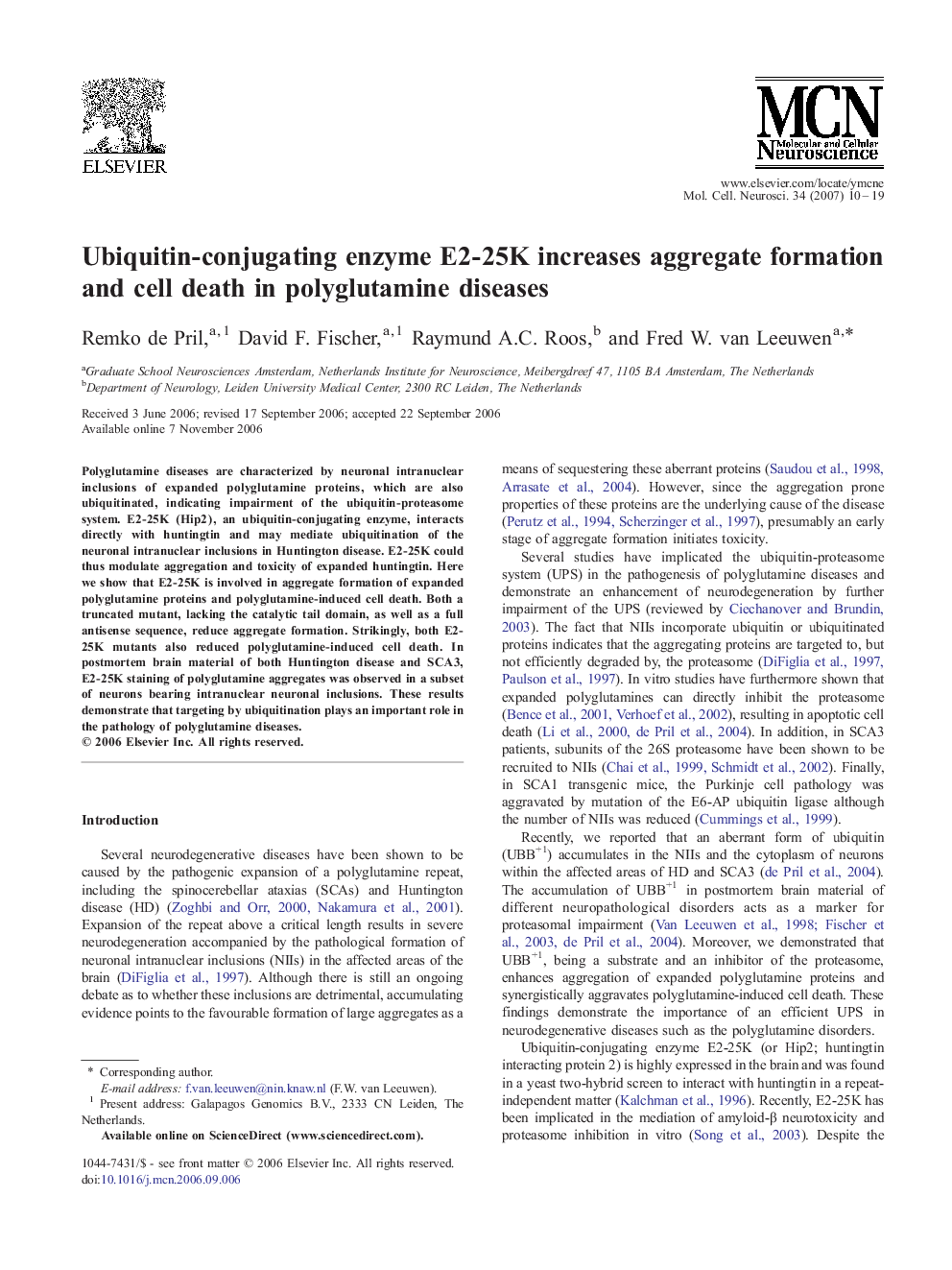| Article ID | Journal | Published Year | Pages | File Type |
|---|---|---|---|---|
| 2199331 | Molecular and Cellular Neuroscience | 2007 | 10 Pages |
Polyglutamine diseases are characterized by neuronal intranuclear inclusions of expanded polyglutamine proteins, which are also ubiquitinated, indicating impairment of the ubiquitin-proteasome system. E2-25K (Hip2), an ubiquitin-conjugating enzyme, interacts directly with huntingtin and may mediate ubiquitination of the neuronal intranuclear inclusions in Huntington disease. E2-25K could thus modulate aggregation and toxicity of expanded huntingtin. Here we show that E2-25K is involved in aggregate formation of expanded polyglutamine proteins and polyglutamine-induced cell death. Both a truncated mutant, lacking the catalytic tail domain, as well as a full antisense sequence, reduce aggregate formation. Strikingly, both E2-25K mutants also reduced polyglutamine-induced cell death. In postmortem brain material of both Huntington disease and SCA3, E2-25K staining of polyglutamine aggregates was observed in a subset of neurons bearing intranuclear neuronal inclusions. These results demonstrate that targeting by ubiquitination plays an important role in the pathology of polyglutamine diseases.
